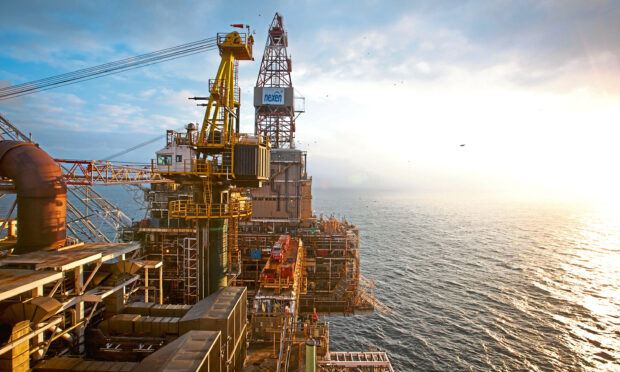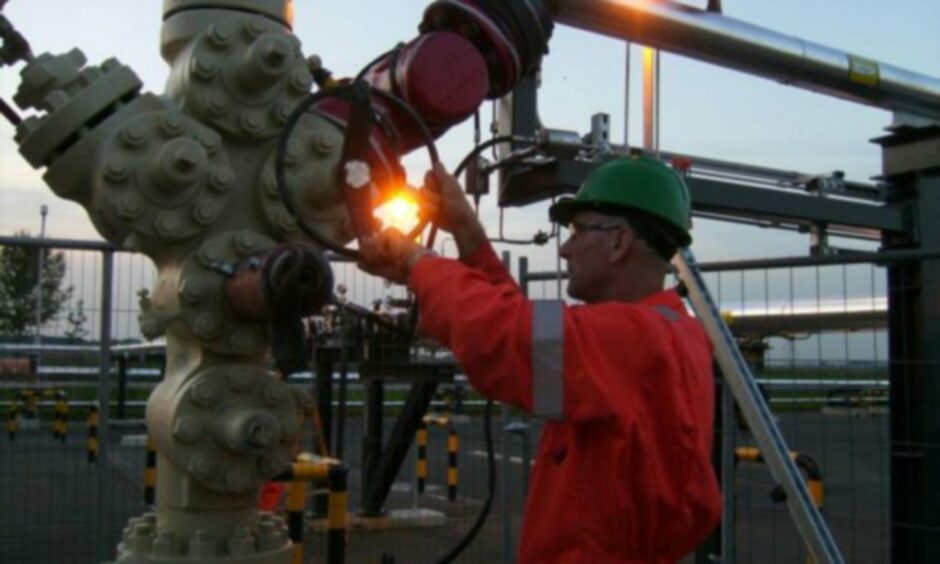North Sea energy firm Parkmead Group has pulled the plug on its flagship Greater Perth Area (GPA) project, blaming higher taxes and growing opposition to new oil and gas developments.
Executive chairman Tom Cross said he and his team at the Aberdeen firm were “naturally disappointed”.
The GPA is estimated to contain about 55 million barrels of recoverable oil equivalent, making it one of the UK North Sea’s largest undeveloped areas.
It includes the Perth and Dolphin discoveries in the central North Sea.
End of the line for flagship GPA project after years of work on it
Parkmead has been working up plans for the area for years. These have recently focused on net-zero production through a tie-back to the Scott facility six miles away.
Development costs for the project, including the extra expense of achieving net-zero requirements, had soared to nearly a billion US dollars (about £780 million).
But in a strategy update today, Parkmead insisted its “technically sound” development could have added “significant” oil volumes for the UK, albeit through “ultra late-life neighboring infrastructure”.
Parkmead says GPA’s development would have boosted energy security
It would have helped to deliver maximum economic recovery from the North Sea – in line with government policy – as well as energy security for the UK, the company said.
And it attracted farm-in interest from “multiple parties”, Parkmead added.
The firm highlighted ongoing concerns over the longevity of nearby infrastructure and the lack of an alternative to using it.
And it went on to blame much higher North Sea taxes, following the introduction of a windfall tax on the industry last year, for its decision to walk away from developing the GPA. This tax environment “materially damages” project economics, Parkmead said.
The company added: “These factors, combined with a lack of public and political support for new oil projects, have resulted in a very cautious and conditional approach from industry.
“It has become clear that without full and committed engagement from industrial partners it would not be practical to progress the Perth development to FID (final investment decision), particularly recognising the massive level of capital investment required. The company, therefore, advises that the potential Perth oil development will not be pursued.”
Aberdeen company to focus on more ‘attractive’ projects
Parkmead has a 100% stake in the GPA, alongside other interests in the UK and Netherlands. It will now turn its attention to “attractive projects” that are “simpler and lower cost”.
Executive chairman Tom Cross said: “Over recent years a great deal of our team’s effort has been directed at trying to unlock the complex Perth area.
“Our team is naturally disappointed that despite these huge efforts, working closely with neighbouring operating companies and highly skilled supply chain companies, the combination of challenging factors means it is not economically viable to take the project forward. Our expert resources will now be focused on other valuable opportunities.”
He continued: “As a balanced energy company, Parkmead will continue to progress its diverse portfolio of gas, oil and renewable energy assets in order to maximise shareholder value.
“We have sound and sustainable revenue from our Dutch gas fields, plus income and increasing potential from our growing renewables portfolio.”
Parkmead will book a £33m “non-cash” write-down down for the abandoned project in its next results.
Investors reacted badly to the news, with the firm’s shares plunging nearly 20% to 15p.



Conversation